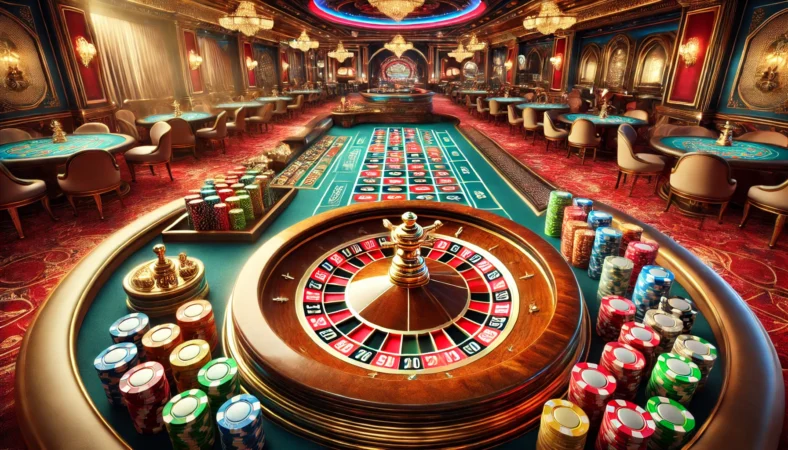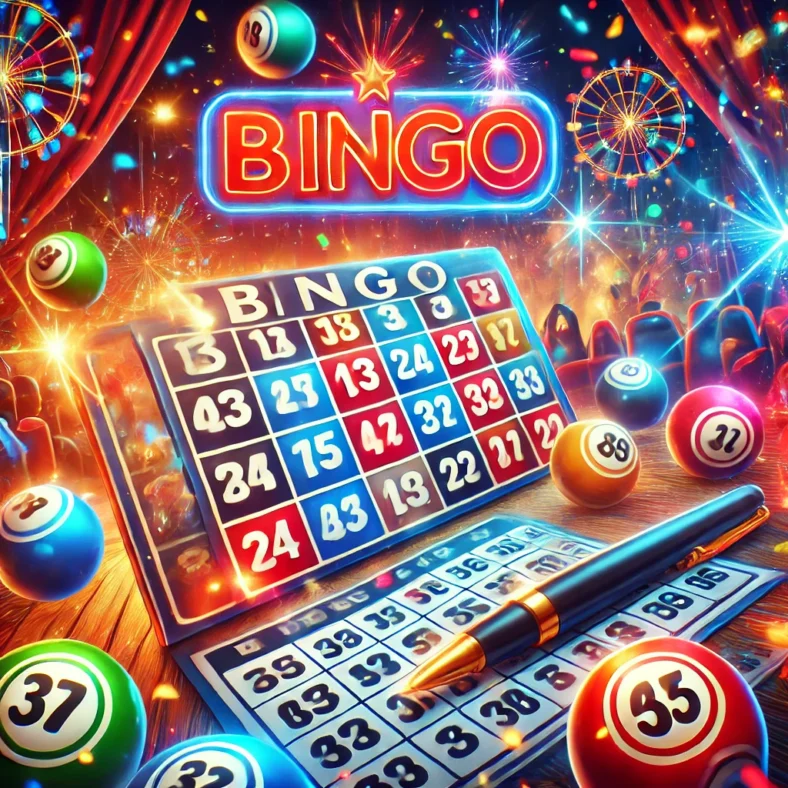Interesting Facts About Roulette – Roulette is one of the most iconic and exciting casino games, known for its distinctive spinning wheel, colorful layout, and the thrill of anticipation as the ball bounces around before landing on a number. The game’s origins date back to 18th-century France, and over the years, it has become a staple at casinos worldwide. Its appeal lies not only in its simplicity but also in the suspenseful moments that come with each spin. Players can place a variety of bets, each offering different odds, making it a versatile game for both beginners and experienced gamblers. Today, roulette is enjoyed in both physical casinos and online platforms, remaining a favorite for its fast-paced action and the potential for big wins.
Interesting Facts About Roulette
Roulette, a game that has captured the imagination of millions, is full of interesting facts and history. From its creation to its modern-day variations, roulette continues to hold a special place in the world of gambling. Below, we explore some of the most intriguing aspects of this iconic casino game.
1. The Origins of Roulette
The roots of roulette can be traced back to 18th-century France, where it was invented by Blaise Pascal, a French mathematician. Pascal was attempting to create a perpetual motion machine when he inadvertently laid the foundation for the roulette wheel. The game became popular in Paris during the late 1700s and spread across Europe and later to America. Its name comes from the French word “roulette,” which means “little wheel,” referring to the spinning wheel that is central to the game.
2. Two Main Versions: European and American
While roulette has many variations, the two most popular versions are European and American roulette. The European version features a wheel with 37 slots, numbered from 0 to 36, while the American version includes an additional double-zero (00), bringing the total to 38 slots. This difference in the number of slots changes the odds slightly, with European roulette offering better chances for players. The additional zero in the American version increases the house edge, making it less favorable for gamblers.
3. The Mysterious “Roulette Bias”
In the early 19th century, some sharp-eyed players noticed that the roulette wheel in certain casinos would sometimes favor specific numbers or sections of the wheel. This phenomenon, known as the “roulette bias,” occurs when a wheel becomes worn or misaligned, causing the ball to land on certain numbers more frequently. In the 1970s, a team of players managed to exploit this bias at casinos in Las Vegas, leading to significant winnings. Today, casinos ensure their wheels are perfectly balanced and maintained to prevent any bias, using advanced technology to test the wheels for any irregularities.
4. The Legend of the “Man Who Bet Everything”
One of the most famous stories surrounding roulette involves the gambler who allegedly bet everything on a single spin of the wheel. According to legend, a player once placed a massive bet on the number 7 and won an enormous payout. This tale has been passed down through generations, symbolizing the allure of the game and its potential for both fortune and disaster. Whether true or not, this story has become part of roulette’s rich folklore, reflecting the game’s mix of strategy, luck, and risk.
5. The Role of Luck and Strategy in the Game
While roulette is often considered a game of chance, many players employ different strategies in an attempt to increase their odds of winning. The most popular betting strategies include the Martingale system, where players double their bets after each loss, and the Fibonacci system, based on the famous mathematical sequence. However, it’s important to remember that no strategy can overcome the house edge, which remains a fundamental part of the game. Despite this, many players enjoy the challenge of experimenting with various betting systems, adding an extra layer of excitement to the game.
6. The Iconic Roulette Ball
The small ball that spins around the roulette wheel plays a significant role in creating the drama and suspense of the game. Made of ivory, plastic, or wood, the ball’s size and weight are designed to ensure it bounces unpredictably around the wheel before settling into a pocket. Over the years, there have been attempts to develop a “magic” ball that could be controlled or predicted, but these efforts have largely been unsuccessful, keeping the element of chance alive in every spin.
7. The Impact of Roulette on Pop Culture
Roulette has had a profound influence on pop culture, often being featured in films, television shows, and literature. Classic movies such as Casino Royale and The Killing showcase iconic roulette scenes that have cemented the game’s reputation as the epitome of casino glamour and suspense. The game has also been referenced in novels by authors like Ian Fleming and Dostoevsky, further embedding it into the public consciousness. The game’s combination of excitement and unpredictability makes it a perfect metaphor for the world of high stakes and risky decisions, which is why it remains a central element in many portrayals of gambling.
8. The Lucky Number 7 Myth
In the world of roulette, some players believe in lucky numbers that can bring them fortune. The number 7 is often considered the luckiest number, with many people choosing it as their favored bet. Whether due to its cultural significance or its frequent association with good fortune, players around the world continue to bet on this number in the hopes of hitting the jackpot. While the odds of hitting a specific number in roulette are the same for all numbers, the number 7 retains a special place in the hearts of many.
9. The House Edge
One of the key facts about roulette is the house edge, which represents the casino’s advantage over the player. In European roulette, the house edge is 2.7%, meaning for every $100 wagered, the casino expects to keep $2.70 in the long run. In American roulette, the house edge increases to 5.26%, thanks to the extra double-zero. The house edge is a crucial factor to consider when playing roulette, as it explains why casinos are able to consistently make a profit over time, despite players’ occasional wins.
Conclusion
Roulette is a game that has captivated people for centuries, and its enduring popularity can be attributed to its mix of chance, excitement, and the thrill of possibility. From its origins in France to its modern-day versions, roulette continues to be a central fixture in casinos worldwide. The interesting facts surrounding this game, from its fascinating history to its influence on pop culture, make it an intriguing subject for both casual players and devoted enthusiasts alike. Whether you’re a seasoned gambler or a newcomer, the allure of roulette remains as strong as ever.






